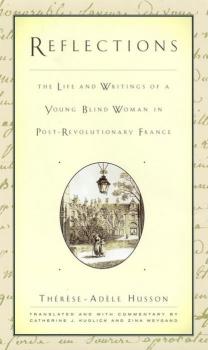The History of Disability
Скачать книги из серии The History of DisabilityThe Radical Lives of Helen Keller
A political biography that reveals new sides to Helen Keller Several decades after her death in 1968, Helen Keller remains one of the most widely recognized women of the twentieth century. But the fascinating story of her vivid political life—particularly her interest in radicalism and anti-capitalist activism—has been largely overwhelmed by the sentimentalized story of her as a young deaf-blind girl. Keller had many lives indeed. Best known for her advocacy on behalf of the blind, she was also a member of the socialist party, an advocate of women's suffrage, a defender of the radical International Workers of the World, and a supporter of birth control—and she served as one of the nation's most effective but unofficial international ambassadors. In spite of all her political work, though, Keller rarely explored the political dimensions of disability, adopting beliefs that were often seen as conservative, patronizing, and occasionally repugnant. Under the wing of Alexander Graham Bell, a controversial figure in the deaf community who promoted lip-reading over sign language, Keller became a proponent of oralism, thereby alienating herself from others in the deaf community who believed that a rich deaf culture was possible through sign language. But only by distancing herself from the deaf community was she able to maintain a public image as a one-of-a-kind miracle.Using analytic tools and new sources, Kim E. Nielsen's political biography of Helen Keller has many lives, teasing out the motivations for and implications of her political and personal revolutions to reveal a more complex and intriguing woman than the Helen Keller we thought we knew.
The Ugly Laws
In the late-nineteenth and early-twentieth centuries, municipallaws targeting «unsightly beggars» sprang up in cities across America. Seeming to criminalize disability and thus offering a visceral example of discrimination, these “ugly laws” have become a sort of shorthand for oppression in disability studies, law, and the arts.In this watershed study of the ugly laws, Susan M. Schweik uncovers the murky history behind the laws, situating the varied legislation in its historical context and exploring in detail what the laws meant. Illustrating how the laws join the history of the disabled and the poor, Schweik not only gives the reader a deeper understanding of the ugly laws and the cities where they were generated, she locates the laws at a crucial intersection of evolving and unstable concepts of race, nation, sex, class, and gender. Moreover, she explores the history of resistance to the ordinances, using the often harrowing life stories of those most affected by their passage. Moving to the laws’ more recent history, Schweik analyzes the shifting cultural memory of the ugly laws, examining how they have been used—and misused—by academics, activists, artists, lawyers, and legislators.
Words Made Flesh
During the early nineteenth century, schools for the deaf appeared in the United States for the first time. These schools were committed to the use of the sign language to educate deaf students. Manual education made the growth of the deaf community possible, for it gathered deaf people together in sizable numbers for the first time in American history. It also fueled the emergence of Deaf culture, as the schools became agents of cultural transformations. Just as the Deaf community began to be recognized as a minority culture, in the 1850s, a powerful movement arose to undo it, namely oral education. Advocates of oral education, deeply influenced by the writings of public school pioneer Horace Mann, argued that deaf students should stop signing and should start speaking in the hope that the Deaf community would be abandoned, and its language and culture would vanish. In this revisionist history, Words Made Flesh explores the educational battles of the nineteenth century from both hearing and deaf points of view. It places the growth of the Deaf community at the heart of the story of deaf education and explains how the unexpected emergence of Deafness provoked the pedagogical battles that dominated the field of deaf education in the nineteenth century, and still reverberate today.
Reflections
In the 1820s, several years before Braille was invented, Therese-Adele Husson, a young blind woman from provincial France, wrote an audacious manifesto about her life, French society, and her hopes for the future. Through extensive research and scholarly detective work, authors Catherine Kudlick and Zina Weygand have rescued this intriguing woman and the remarkable story of her life and tragic death from obscurity, giving readers a rare look into a world recorded by an unlikely historical figure. Reflections is one of the earliest recorded manifestations of group solidarity among people with the same disability, advocating self-sufficiency and independence on the part of blind people, encouraging education for all blind children, and exploring gender roles for both men and women. Resolutely defying the sense of «otherness» which pervades discourse about the disabled, Husson instead convinces us that that blindness offers a fresh and important perspective on both history and ourselves. In rescuing this important historical account and recreating the life of an obscure but potent figure, Weygand and Kudlick have awakened a perspective that transcends time and which, ultimately, remaps our inherent ideas of physical sensibility



